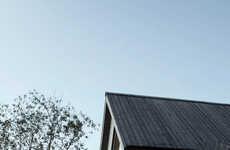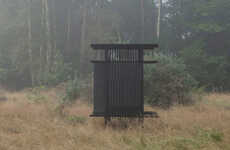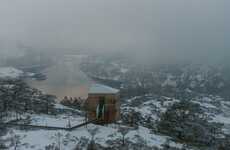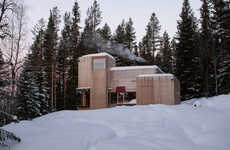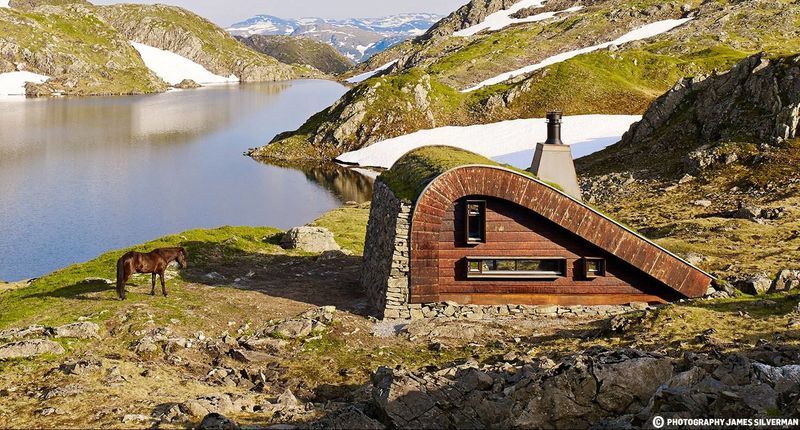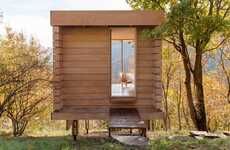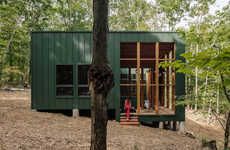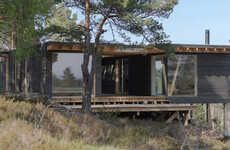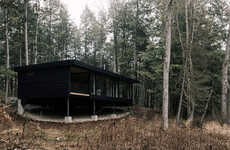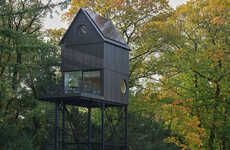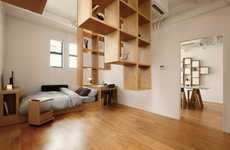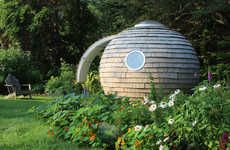
This Isolated Hunting Cabin Naturally Blends into Its Surroundings
David Ingram — June 11, 2015 — Art & Design
Located in a remote mountain range in western Norway, the Bjellandsbu hunting cabin by architecture and design firm Snøhetta skillfully blends into the surrounding landscape.
Made in part from locally sourced materials, this hunting cabin's curved shape is formed from two sloped steel beams decorated with a stone and timber facade. A grass covered roof helps to further blend this naturalistic structure into place.
Inside this 376 square foot hunting cabin a more modern and contemporary influence is at play. Inspired by Scandinavian design, the interior features a central fireplace surrounded by cushioned platforms functioning both as an area for sitting and for rest. With this careful planning, the hunting cabin is able to comfortably host up to 21 people. Windows on both sides of the building also allow not only for a spectacular view, but also let in natural light to brighten up the room.
Made in part from locally sourced materials, this hunting cabin's curved shape is formed from two sloped steel beams decorated with a stone and timber facade. A grass covered roof helps to further blend this naturalistic structure into place.
Inside this 376 square foot hunting cabin a more modern and contemporary influence is at play. Inspired by Scandinavian design, the interior features a central fireplace surrounded by cushioned platforms functioning both as an area for sitting and for rest. With this careful planning, the hunting cabin is able to comfortably host up to 21 people. Windows on both sides of the building also allow not only for a spectacular view, but also let in natural light to brighten up the room.
Trend Themes
1. Sustainable Architecture - Exploring sustainable materials and design in architecture can lead to innovative ways of blending structures into natural surroundings.
2. Interior Design Integration - Integrating modern and contemporary influences into compact spaces creates functional yet visually appealing interior designs.
3. Scandinavian-inspired Spaces - Drawing inspiration from Scandinavian design principles can lead to efficient and comfortable spaces suitable for multiple uses.
Industry Implications
1. Architecture - Architects and designers can explore sustainable materials and innovative design techniques to create structures that blend harmoniously with the environment.
2. Interior Design - Interior designers can incorporate modern and contemporary elements into compact spaces to create functional and visually pleasing environments.
3. Tourism and Hospitality - The concept of blending into natural surroundings and offering comfortable accommodations can be applied to eco-tourism and remote hospitality ventures.
6.6
Score
Popularity
Activity
Freshness


